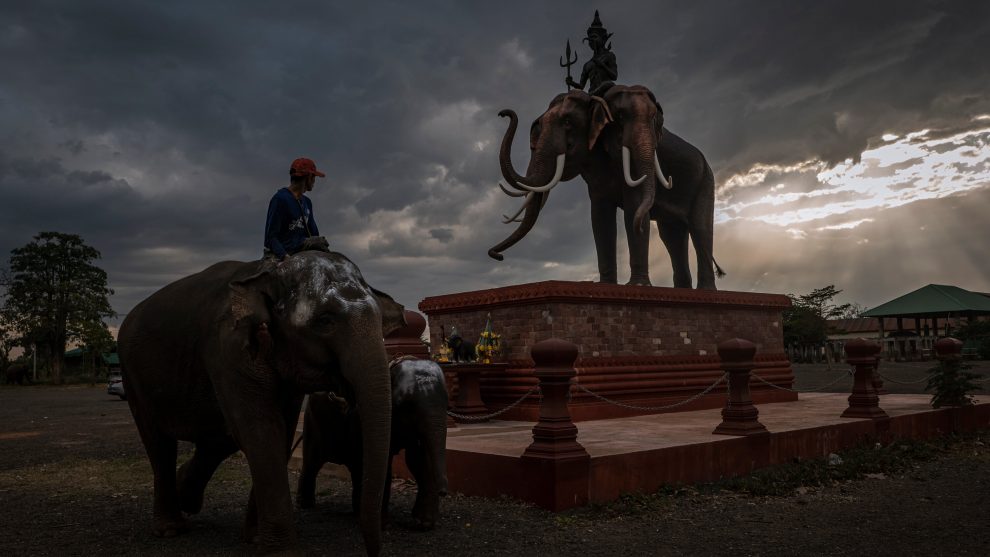When the tourists who rode them disappeared from resort destinations, Thailand’s captive elephants, and their owners, went back to their birth villages, where finding enough food has been a struggle.
BAAN TA KLANG, Thailand — Lucky was busy munching on some freshly cut grass when she spotted a special treat a tourist was holding out. She dropped her next mouthful of greens and extended her trunk, asking for the banana.
For the first time in nine years, Lucky, 32, was back in her home village in rural Surin Province in eastern Thailand, where tourists are much rarer than on the resort island where she used to work.
“She loves bananas the most, also sugarcane or watermelon,” said Lucky’s caretaker, Aon Salangam. His magnificently intimidating elephant may weigh almost four tons and stand nearly 10 feet tall, but “she is a sweetheart,” assured Mr. Aon.
Lucky, along with her stepsister, Kaewmani, used to carry tourists around an elephant park on the island of Phuket in the southern part of the country. But like thousands of other pachyderms around Thailand — and 200 in Surin Province alone — they had to return home with their owners when the pandemic devastated the country’s tourist industry, which has yet to fully recover.
Visitors to the small village of Baan Ta Klang, with perhaps 100 homes, are immediately struck by an astonishing, even unsettling sight: Nearly every house has one or more elephants chained up outside.
On nearby roads, it’s not uncommon to see pachyderms traipsing along with their mahouts straddling their thick necks as vehicles carefully navigate around them.
Government agencies estimate that Thailand has 3,800 captive elephants and about 3,600 in the wild. Unlike other countries with significant captive populations, the ones in Thailand are nearly all privately owned, with the animals and their offspring passed down through generations.
Kaennapa Suksri owns six elephants, three of them descended from a 67-year-old matriarch she inherited. For most of the past 20 years, Ms. Kaennapa and her partner had worked in the mainland beach resort of Pattaya, offering tourists elephant rides.
When the tourists stopped showing up, the couple tried to hang on in Pattaya, hoping the pandemic would cause only a short disruption. But their savings were gone in a year, and they had to come home to Baan Ta Klang, which has its own tourist park, Elephant World, that is integrated with a research center.
“Taking care of six elephants is not cheap,” Ms. Kaennapa said. But looking for a new owner was out of the question. “I never think of selling them because I don’t know how well the new owner will look after them. We just have to find ways to earn money to feed them.”
Source: The New York Times

























